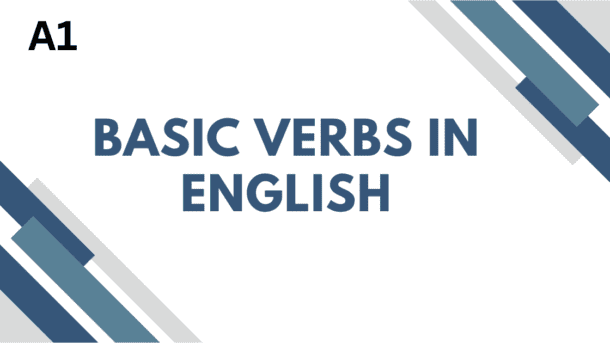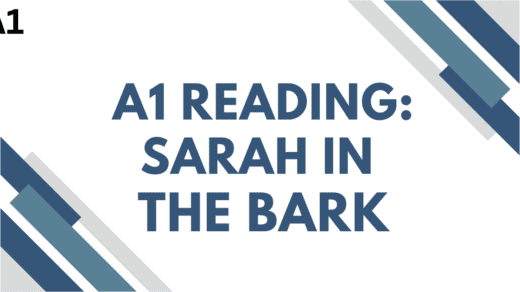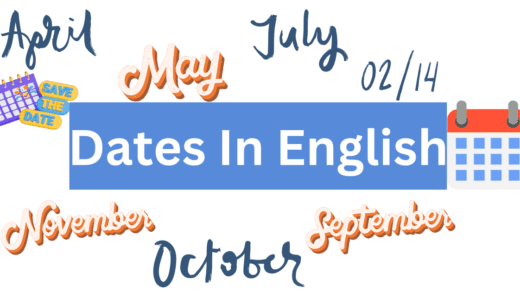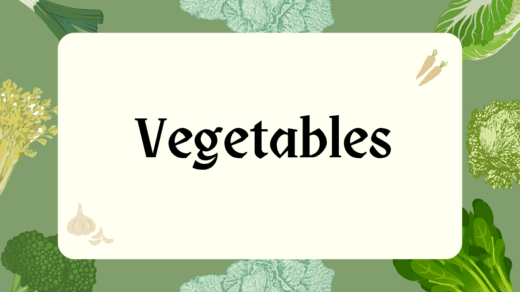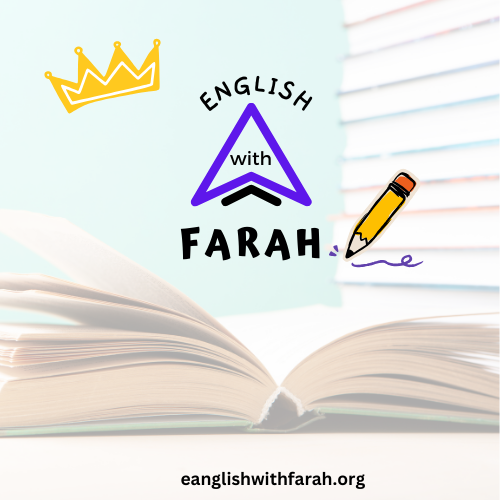Basic verbs in English play a crucial role in communication, as they describe actions, states, and occurrences. First, it is essential to understand that action verbs convey activities, such as “run,” “eat,” and “study.” Next, linking verbs, like “is,” “are,” and “seem,” connect the subject to additional information, helping to describe or define it. Furthermore, auxiliary verbs, such as “can,” “will,” and “have,” assist main verbs to create different tenses and moods. Finally, mastering these basic verbs will greatly enhance your ability to express ideas clearly and effectively in English.
Understanding Verbs
So a verb is basically a word that signifies an action, occurrence, or state of being. They can be broadly categorized into different types:
- Action Verbs: Describe physical or mental actions (e.g., run, think).
- Linking Verbs: Connect the subject to more information (e.g., is, seem).
- Auxiliary (Helping) Verbs: Assist main verbs to form different tenses (e.g., have, will, can).
So for this lesson, we will focus predominantly on basic action and linking verbs.
1. The Verb “To Be”
The verb “to be” is one of the most important and commonly used verbs in English, serving as a linking verb that connects the subject of a sentence with a subject complement.
Forms: am, is, are, was, were, be, being, been.
Examples:
- Present Simple:
- I am a student.
- You are happy.
- He is tall.
- Past Simple:
- They were at the party.
- She was tired yesterday.
Usage:
- To express identity: e.g., “She is a doctor.”
- To indicate location: e.g., “They are in the garden.”
- To describe states or feelings: e.g., “I am excited.”
2. The Verb “To Have”
“To have” can indicate possession, relationships, and experiences. It also functions as an auxiliary verb in perfect tenses.
Forms: have, has, had, having.
Examples:
- Present Simple:
- I have a cat.
- He has a car.
- Past Simple:
- We had a great time last night.
Usage:
- To show possession: e.g., “She has a beautiful house.”
- To indicate relationships: e.g., “They have a son.”
- In perfect tenses: e.g., “I have finished my homework.”
3. The Verb “To Do”
“To do” is an action verb used to describe actions and to form questions and negations in the present and past tenses.
Forms: do, does, did, doing.
Examples:
- Present Simple:
- I do my homework every day.
- She does yoga on weekends.
- Past Simple:
- He did his chores yesterday.
Usage:
- To act: e.g., “I do my best.”
- In questions: e.g., “Do you understand?”
- In negations: e.g., “I do not like coffee.”
4. The Verb “To Go”
“To go” signifies movement from one place to another and is frequently used in various expressions.
Forms: go, goes, went, gone, going.
Examples:
- Present Simple:
- I go to school by bus.
- She goes to the gym.
- Past Simple:
- They went to the beach last summer.
Usage:
- To indicate movement: e.g., “We go for a walk.”
- In expressions: e.g., “He goes home every day after work.”
- To form future intentions: e.g., “I am going to visit you next week.”
5. The Verb “To Make”
“To make” often pertains to creating or producing something. It is commonly used in idiomatic expressions.
Forms: make, makes, made, making.
Examples:
- Present Simple:
- I make breakfast every morning.
- She makes beautiful art.
- Past Simple:
- He made a cake for the party.
Usage:
- To create: e.g., “They make toys.”
- In idiomatic expressions: e.g., “I made a decision.”
- To indicate a cause: e.g., “His remark made me laugh.”
6. The Verb “To Want”
“To want” expresses desire or intent and is pivotal in conversing about goals or aspirations.
Forms: want, wants, wanted, wanting.
Examples:
- Present Simple:
- I want to travel the world.
- She wants some ice cream.
- Past Simple:
- They wanted to see the movie.
Usage:
- To express desire: e.g.,” He wants a new job.”
- In questions: e.g., “Do you want to join us?”
- Indicative of lacking: e.g., “I want more time.”
7. The Verb “To See”
“To see” denotes perception through the eyes and serves as a way to describe experiences or encounters.
Forms: see, sees, saw, seen, seeing.
Examples:
- Present Simple:
- I see the stars at night.
- She sees her friend often.
- Past Simple:
- We saw a great concert last week.
Usage:
- To indicate vision: e.g., “They see the mountains from their house.”
- To express experiences: e.g., “I have seen that movie.”
- In metaphoric contexts: e.g., “I see what you mean.”
8. The Verb “To Know”
“To know” conveys understanding or awareness and is vital for discussions about information and familiarity.
Forms: know, knows, knew, known, knowing.
Examples:
- Present Simple:
- I know the answer to that question.
- He knows a lot about history.
- Past Simple:
- She knew him from childhood.
Usage:
- To express knowledge: e.g., “They know the city well.”
- In questions: e.g., “Do you know her?”
- To express recognition: e.g., “I know that song.”
50 basic verbs in English
Here’s a list of 100 basic verbs in English along with example sentences for each:
- Ask – I will ask a question.
- Be – She wants to be a doctor.
- Become – He will become a great leader.
- Begin – They will begin the meeting at 10 AM.
- Believe – I believe in fairytales.
- Borrow – Can I borrow your pen?
- Break – Be careful not to break the glass.
- Bring – Please bring your lunch.
- Call – I will call you later.
- Carry – Can you carry this bag?
- Change – She needs to change her clothes.
- Choose – I must choose a book to read.
- Clean – I will clean my room today.
- Climb – We will climb the mountain.
- Close – Please close the door.
- Come – Can you come to my party?
- Cook – He loves to cook Italian food.
- Dance – They dance at every celebration.
- Decide – I need to decide by noon.
- Die – The plants will die without water.
- Do – I will do my homework.
- Draw – She likes to draw cartoons.
- Dream – I dream of traveling the world.
- Drink – We drink coffee in the morning.
- Drive – He can drive a car.
- Eat – They will eat dinner together.
- End – The show will end at 9 PM.
- Enjoy – I enjoy watching movies.
- Explain – Can you explain this to me?
- Feel – I feel happy today.
- Find – I need to find my keys.
- Fly – Birds fly in the sky.
- Forget – Don’t forget your umbrella.
- Get – I will get some groceries.
- Give – Please give me a hand.
- Go – We will go to the beach.
- Grow – The flowers grow in spring.
- Hang – I will hang the picture on the wall.
- Have – They have a new car.
- Hear – Can you hear the music?
- Help – I will help you with that.
- Hope – I hope for good weather.
- Keep – Please keep your room tidy.
- Know – I know the answer.
- Laugh – They laugh at the funny joke.
- Learn – I want to learn Spanish.
- Leave – We will leave soon.
- Like – I like playing basketball.
- Listen – Please listen to this song.
More 50 basic verbs in English
- Live – They live in a big city.
- Look – Look at the beautiful sunset.
- Love – I love chocolate.
- Make – She will make a cake.
- March – Soldiers march in formation.
- Meet – Let’s meet at the café.
- Mention – Did you mention the party?
- Move – She will move to a new house.
- Need – I need some help.
- Open – Can you open the window?
- Paint – He paints landscapes.
- Play – They play soccer every Saturday.
- Read – I read a book before bed.
- Run – He can run fast.
- Say – Please say your name.
- See – I see the stars at night.
- Sell – They sell fresh fruit at the market.
- Send – I will send you an email.
- Sing – She loves to sing in the shower.
- Sit – Please sit here.
- Sleep – I sleep for eight hours a night.
- Smile – They smile at each other.
- Speak – He can speak three languages.
- Spend – She likes to spend time with friends.
- Stand – Please stand in line.
- Start – They will start school next week.
- Stop – Please stop talking.
- Study – I need to study for the test.
- Take – Can you take this picture?
- Talk – We need to talk about the project.
- Teach – He will teach us math.
- Tell – Please tell me the story.
- Think – I need to think about it.
- Throw – She can throw the ball far.
- Understand – Do you understand the question?
- Use – You can use my phone.
- Visit – We will visit our grandparents.
- Wait – Please wait for me.
- Walk – They walk to school every day.
- Want – I want a new phone.
- Watch – Let’s watch a movie.
- Win – They hope to win the game.
- Work – I work from home.
- Write – She loves to write stories.
- Yell – Don’t yell at the dog.
- Zip – Please zip your backpack.
- Travel – We travel during the summer.
- Change – She will change her mind.
- Achieve – I hope to achieve my goals.
- Advise – He will advise us on the project.
- Appreciate – I really appreciate your help.
Tips for studying Basic Verbs in English
To study basic verbs in English effectively, first, identify a list of essential verbs that you want to focus on.
Next, create sentences using these verbs to contextualize their meanings, which helps with retention. Then, practice with interactive methods, such as flashcards or verb conjugation exercises.
Additionally, review your sentences by checking for correct usage; for instance, if you wrote, “I walk to the store,” you could modify it to “I walked to the store yesterday” to learn about verb tenses.
Finally, consistently revisit the verbs and their uses through speaking or writing exercises, ensuring you reinforce your knowledge over time.
Basic verbs in English: Conclusion
In conclusion, understanding basic verbs in English is essential for effective communication. First, these verbs serve as the foundation of sentence construction, helping to convey actions and states of being. Next, mastering their usage can significantly improve both writing and speaking skills, making your language more dynamic and expressive. Furthermore, practicing these verbs in various contexts allows for greater fluency and confidence. Finally, by consistently revisiting and applying what you’ve learned, you can solidify your grasp of basic verbs and enhance your overall command of the English language.
